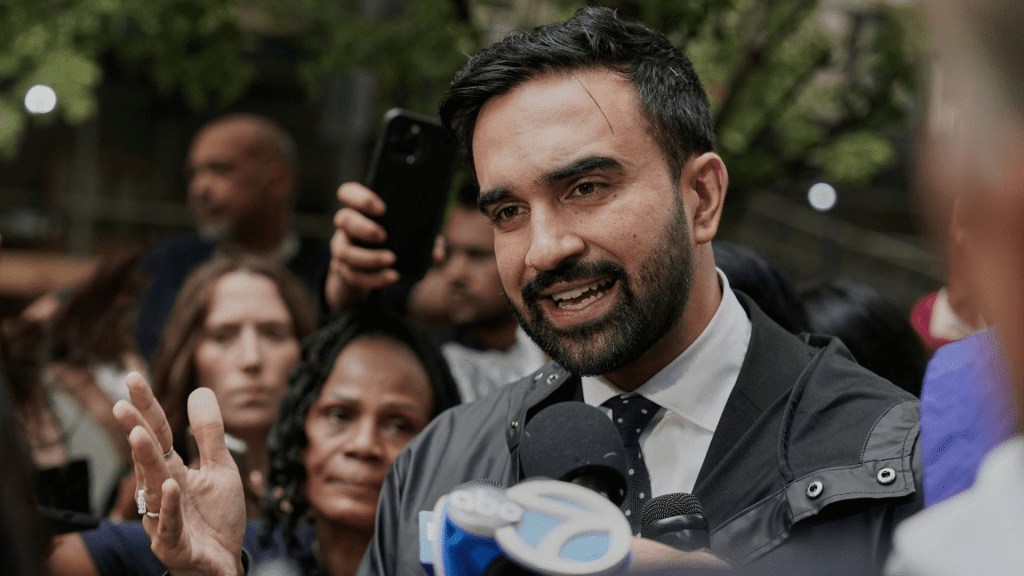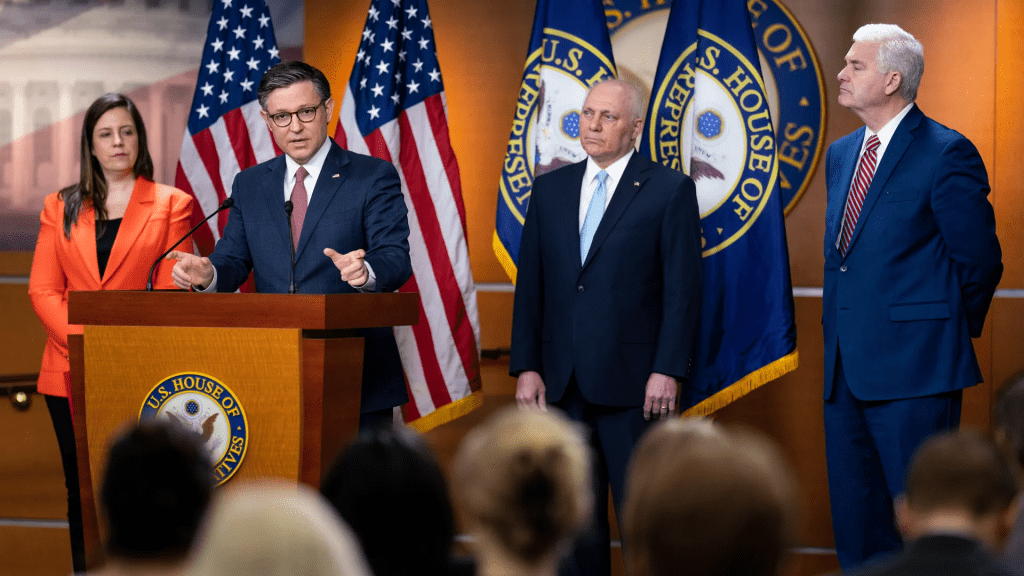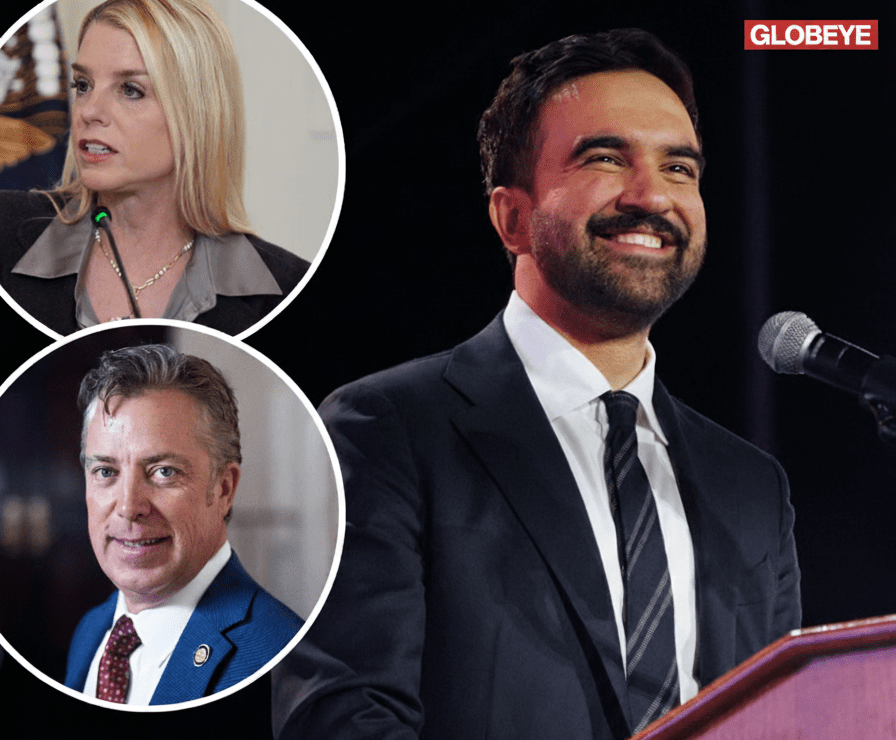House Republicans Reportedly Weigh Using “Insurrection Clause” to Stop Zohra Mamdani from Being Sworn In as New York City Mayor — Political Firestorm Erupts Ahead of Election Day
In a stunning and unprecedented political maneuver, House Republicans are reportedly exploring options to prevent Zohra Mamdani from being sworn in as New York City’s next mayor — even if he wins the upcoming election — by invoking the rarely used “insurrection clause” of the U.S. Constitution. The revelation, first reported by the New York Post, has sent shockwaves through political circles and ignited a nationwide debate about democracy, accountability, and the limits of constitutional authority in modern politics.
According to multiple insiders familiar with the matter, several senior GOP lawmakers have privately discussed whether Mamdani, a progressive Democrat known for his outspoken activism, could be barred from taking office under Section 3 of the 14th Amendment — the same clause that was debated in legal circles during past controversies surrounding political figures accused of encouraging unrest. While no formal action has been taken, the fact that such a conversation is reportedly underway underscores just how polarized the political landscape has become as Election Day looms.

The 14th Amendment’s insurrection clause was originally drafted after the Civil War to prevent Confederate officials who took up arms against the Union from holding public office again. In modern history, it has rarely been invoked, and never in the context of a municipal election. But Republican strategists are said to be examining whether Mamdani’s history of anti-establishment activism and comments critical of American foreign policy could be legally construed as grounds for disqualification.
Mamdani, who represents a new wave of progressive leadership in New York politics, has been a lightning rod for controversy since launching his campaign. His platform — focused on housing justice, police reform, and expanding social services — has resonated with younger and more diverse voters across the city. Yet, his critics, including several conservative lawmakers and law enforcement unions, have accused him of holding “radical” views that undermine the city’s stability.
Republicans in Washington have seized on those concerns. According to reports, discussions within certain GOP circles have intensified after a series of Mamdani speeches resurfaced online, where he spoke about systemic inequities and criticized federal counterterrorism policies. Supporters say these remarks were part of legitimate policy debate, while opponents claim they reveal a troubling pattern of rhetoric that “disrespects law enforcement and national unity.”

Behind the scenes, the idea of blocking Mamdani’s swearing-in reportedly began circulating among members of the House Judiciary Committee and select state lawmakers. Legal experts consulted by The Post note that any attempt to apply the “insurrection clause” in this context would face enormous constitutional challenges — but in the current political climate, even the threat of such action could carry powerful symbolic weight.
Sources within the Republican caucus describe the move as “preventive,” arguing that it’s less about Mamdani personally and more about “protecting the integrity of the office.” One aide, speaking on condition of anonymity, told reporters, “We’re exploring all lawful measures. This isn’t about suppressing votes — it’s about ensuring that someone who has shown disdain for core American principles isn’t allowed to lead one of the country’s most important cities.”
The comments have drawn fierce backlash from Democrats and civil rights groups, who see the maneuver as a direct assault on the democratic process. “If Republicans go through with this, it will set a dangerous precedent — the idea that federal officials can nullify the results of a local election,” said a spokesperson for the New York State Democratic Committee. “It’s not just about New York City. It’s about whether we still believe in self-governance.”
For Mamdani’s campaign, the news has become both a political challenge and an unexpected rallying cry. In a statement released late Sunday, Mamdani dismissed the effort as “a desperate attempt to silence change.” He emphasized that his movement represents “the will of ordinary New Yorkers tired of fear politics and elitist power grabs.”
“We’re not going anywhere,” his statement read. “The people will decide this election — not career politicians in Washington.”

Legal scholars say that while the “insurrection clause” technically exists as a constitutional mechanism, applying it would require overwhelming evidence that Mamdani “engaged in rebellion or gave aid or comfort to the enemies of the United States.” In practice, that threshold is extremely high, and courts have historically been reluctant to interpret political dissent as disloyalty.
Still, in an era defined by hyperpartisanship, even far-fetched legal theories can take on new life in the media cycle. Constitutional law professor Eric Alston noted that “what’s significant here isn’t necessarily the likelihood of success — it’s the political signal being sent. By invoking such a dramatic measure, Republicans are demonstrating just how far they’re willing to go to challenge the rise of progressive power in major cities.”
The political timing is also striking. The mayoral election in New York City has drawn national attention as a bellwether for urban politics in 2025. With crime rates stabilizing and housing prices surging, voters have been sharply divided over which direction the city should take next. Mamdani’s campaign has built momentum among grassroots activists and younger voters who see him as a fresh alternative to establishment politics, while his opponents warn that his agenda could “destabilize the city’s economy and law enforcement.”

Behind the scenes, Republican operatives have reportedly been coordinating messaging efforts to frame Mamdani as a “security risk” rather than a policy opponent. Conservative commentators have circulated clips of past speeches to paint him as sympathetic to groups hostile to U.S. interests — claims his campaign strongly denies. “Zohra Mamdani has never supported violence or extremism in any form,” a campaign aide told reporters. “These attacks are politically motivated, and they’re insulting to New Yorkers who just want their voices heard.”
At the national level, the issue could soon escalate beyond rhetoric. If Mamdani wins, legal filings could begin almost immediately, potentially leading to an unprecedented court showdown over the constitutional limits of local governance. Some legal analysts have compared the hypothetical scenario to the debates over the 14th Amendment’s application to former President Trump, arguing that its ambiguous language could invite political misuse.
Meanwhile, within New York City, reactions remain deeply polarized. Conservative groups have praised the potential intervention, calling it “long overdue accountability.” Liberal activists, on the other hand, are organizing protests and fundraising efforts to defend Mamdani’s right to assume office. “This is an attack on democracy in real time,” said one Brooklyn organizer. “If they can block our mayor, they can block anyone they disagree with.”

As Election Day approaches, the controversy has transformed what was already a high-stakes race into a national flashpoint. What began as a local mayoral contest has become a referendum on the boundaries of American democracy itself — a symbolic clash between populist reform and institutional control.
Whether the constitutional challenge materializes remains uncertain. Most experts agree that any attempt to invoke the insurrection clause would almost certainly fail in court, given its historical intent and legal precedents. But even so, the political ripple effect is undeniable. By floating the idea, Republicans have ensured that Mamdani’s candidacy — and the broader fight over who defines “acceptable leadership” in American cities — will remain in the spotlight long after votes are cast.
For now, Mamdani continues to campaign with renewed energy, framing the controversy as proof that his movement threatens entrenched power. “They fear what we represent,” he told a crowd in Queens on Sunday night. “Because what we represent is a government that listens to its people again.”
In a political era where every local race carries national consequences, the unfolding battle over Mamdani’s eligibility may mark a new chapter in the intersection of law, ideology, and democracy — one that could reshape how future elections are fought and how victory itself is defined.


